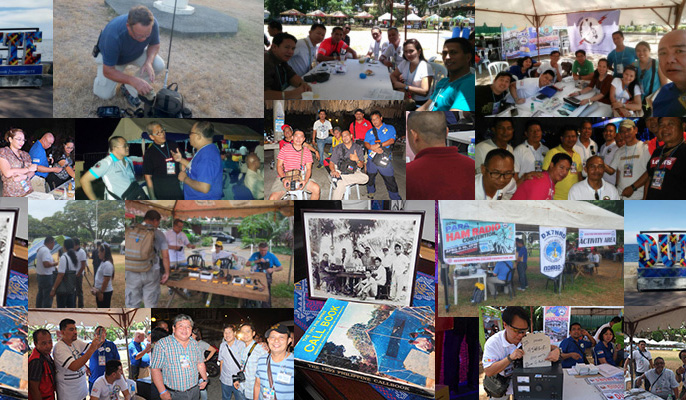
The 1st PARA Ham Radio Go-Kit Contest will be held on November 29, 2015 at the Marikina Polytechnic College. You have to be a member of any PARA affiliate club to participate and you must be a licensed ham to enter and participate. There is no fee to enter the contest, but you have to bring your own table.
All Ham Radio Go-Kit entries must be in working condition by November 29, 2015. This means you must be able to operate the Radio Go-Kit station just as you would at an emergency or disaster activity. You must be able to show the actual setting up and making contact with another licensed ham operator in the same room or elsewhere. You must be able to explain how the system works from the power supply system and external antenna upon request of the judges.
A good Ham Radio Go-Kit should be useful for any family and your community in an emergency, survival situation or any field activity. Having no strict guidelines for building these Go-Kits, these types of projects are open to creativity and individual needs. The number of radios and antennas can vary from one per kit to even three or more.
1. All participants must fill out a submission form to be eligible as a participant.
2. The Go-Kit submission forms will be available online 2 weeks prior to November 29,
2015 or may be requested from the PARA secretariat.
3. Go-Kits will be accepted until 9:00AM, November 29, 2015. This will provide enough
time for viewing and any administrative requirements for the submission.
4. Judging will start at 1:00PM, with the winning submissions announced at the close of
the 83rd PARA Anniversary Celebrations.
5. The Go-Kits can be reclaimed only upon the end of the judgement and awarding period.
There are a few rules that each participant needs to follow. All Go-Kit entries must have the following present at the station:
1. Container - The container can be a toolkit, suitcase, tackle box, ammo can or any other
suitable container. Grouping the equipment into an organized container has a
multitude of choices – almost anything goes.
2. Transceiver - Any transceiver will be accepted as long as it transmits on the IARU Region
3 amateur bands. The transceiver can be single band, dual band, and/or multi-band. The
radio can be an HT, mobile or base. It can be from an amateur radio manufacturer or
commercial radio manufacturer.
3. Power source - The power source must be on site with your Go-Kit. It does not have to
be onboard with the radio. It can be commercially made or homebrew. Power source
examples include a deep-cycle marine battery, any DC power supply or battery box.
4. Microphone - The microphone must be included with your Radio Go-Kit.
5. Keyer and other peripherals are encouraged but not an absolute requirement, so long as
the owner can exhibit functionality and importance of their inclusion.
The competition will be across these classes, not between them. That is, like classes will compete and awards will be given in each class. The entrant will designate the class they wish to participate in. These Ham Radio Go-Kits may use toolkits, tackle boxes, suit cases, ammo cans, backpacks or similar, to house or enclose the Go-Kit station. The same judging criteria will apply equally to both classes.
1. HT or mobile VHF or V/U or mixed - To qualify in this category, the Go-Kit must include an *external power source for the radios, deployable antenna that is attached to the radio via a feed line, an external microphone, and a means of securing the transceivers to a weighted base so that it doesn't fall off the table during use. This base can be the container itself, or some other option.
2. HF+ - To qualify in this category, the Go-Kit must include an HF transceiver which has 3-30MHz plus any VHF or a V/U transceiver or a multiband HF transceiver, *external power source, deployable antenna/s that is/are attached to the radio via a feed line, an external microphone, and a means of securing the transceivers to a weighted base so that it doesn't fall off the table during use. This base can be the container itself, or some other option.
*power source other than commercial AC
Every set-up is unique. Judges can award up to 100 total points.
1. Ingenuity - 1-100 points (35%)
2. Functionality - 1-100 points (45%)
3. Presentation - 1-100 points (20%)
Winners for each class will receive a prize and certificate.